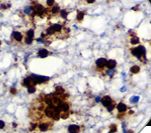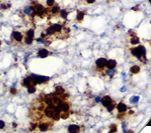order histories, retained contact details for faster checkout, review submissions, and special promotions.
Forgot password?
order histories, retained contact details for faster checkout, review submissions, and special promotions.
Location
Corporate Headquarters
Vector Laboratories, Inc.
6737 Mowry Ave
Newark, CA 94560
United States
Telephone Numbers
Customer Service: (800) 227-6666 / (650) 697-3600
Contact Us
Additional Contact Details
order histories, retained contact details for faster checkout, review submissions, and special promotions.
Forgot password?
order histories, retained contact details for faster checkout, review submissions, and special promotions.
Toxoplasma gondii
Toxoplasma gondii is an obligate, intracellular, parasitic protozoan that causes the toxoplasmosis. T. gondii is capable of infecting virtually all warm-blooded animals, although felids such as domestic cats are the only known hosts in which the parasite can undergo sexual reproduction. There are three stages of infection: the tachyzoite stage of rapid division, the bradyzoite stage of slow division within tissue cysts, and the oocyst environmental stage. When an oocyst or tissue cyst is ingested by a human, the resilient cyst wall is dissolved by proteolytic enzymes in the stomach and small intestine, freeing sporozoites from within the oocyst. The parasites first invade cells in and surrounding the intestinal epithelium, and inside these cells, the parasites differentiate into tachyzoites, the motile and quickly multiplying cellular stage of T. gondii. Tissue cysts in tissues such as brain and muscle tissue form approximately 7–10 days after initial infection.
Toxoplasma gondii Target Details
| Target Name: | Toxoplasma gondii |
Publications (2)


If you do not find the reagent or information you require, please contact Customer.Support@LSBio.com to inquire about additional products in development.











